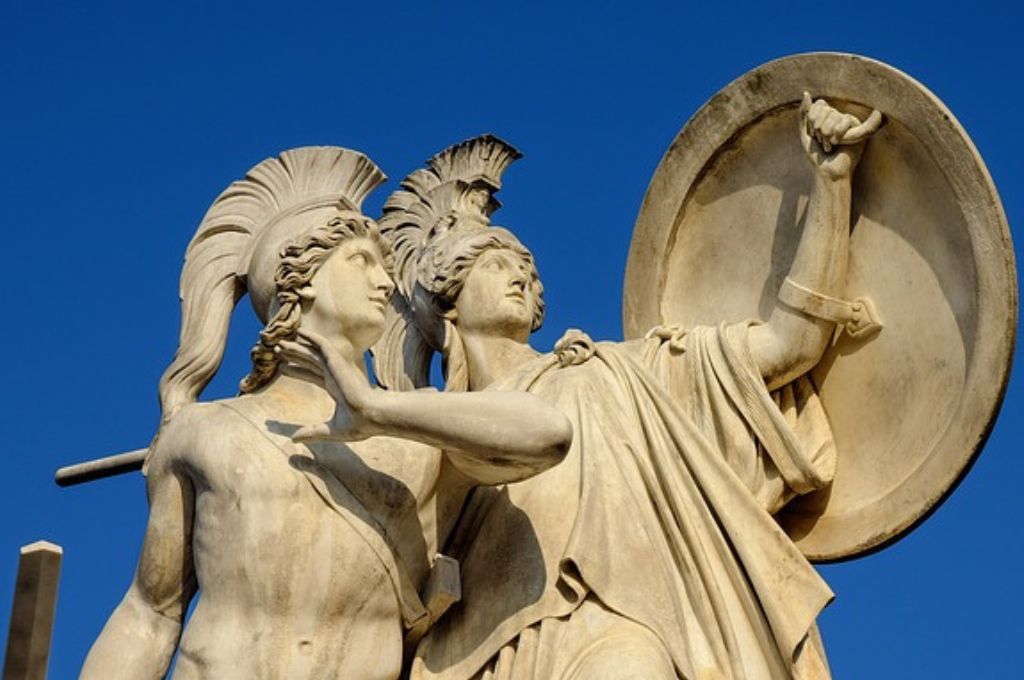Vu Le from Nonprofit AF reimagines Greek myths if they were set in the social sector.
1. The Punishment of Sisyphus
Sisyphus was a king and a clever and cunning man who always played tricks on the gods, so Zeus sent Thanatos, the god of Terrible Management, to chain him up. Sisyphus was like “Whoa, these chains are amazing! Can I try them out on you?” and Thanatos, who was clearly not the brightest, was like “sure!” and Sisyphus chained him up. Then Sisyphus walked away. This angered Zeus, so he decided to punish Sisyphus for all of eternity. Until the end of time, the poor man has to lead a nonprofit, forced to perpetually apply for small one-year grants, his org never financially stable.
2. The Trojan Horse
The war between Greece and Troy lasted a decade and everyone was exhausted. Finally, on the Greek side, strategist Odysseus had the brilliant idea of building a giant wooden horse, which they left at the gate of Troy with a note that said “We give up. Please take this completely solid horse statue as an offering to your gods.” The Trojans were overjoyed and not at all suspicious, so they took the horse in and had a giant celebration. That night, while they slept, the Greeks soldiers hidden inside the wooden horse came out. The following days, they joined the boards of directors of several organisations in the city. They never read board packets, always stopped much more knowledgeable staff from taking bold actions, caused missed quorum, insisted on golf tournaments, and gradually ruined morale. And that was how the city of Troy fell.
3. Narcissus and Echo
Narcissus was a beautiful young man who was very self-absorbed. Echo was a clever nymph who had a silver tongue and could charm people with her words. One day, Hera was looking for her husband Zeus, who was cheating on her by turning himself into a swan or a shower of gold or a container of hummus or something, and Echo distracted Hera long enough for Zeus to get away. When she found out, Hera was very angry. She cursed Echo to only be able to repeat what others say. One day, Echo met Narcissus and fell in love with him. “I should start a nonprofit,” he said to her. She repeated, “Start a nonprofit.” He ran off and founded a nonprofit that gave used togas to poor people abroad, and Echo was heartbroken. But joke’s on Hera, because eventually, Echo became a nonprofit consultant who mainly repeated what the staff says, and boards thought she was so smart and she got paid a ton of money.

4. The Twelve Labours of Heracles
Heracles, or Hercules if you’re Roman, was a demi-god who was hated by Hera because he was one of Zeus’s many illegitimate children. She made him lose control of his mind, and in that state, he did unspeakable things, including using two spaces after periods. To atone for his wrongdoings, he had to perform 12 nearly impossible feats. Those were: Plan a silent auction, diversify a board, give someone feedback, get everyone to track their expense receipts, conduct a 360 assessment without someone getting hurt, endure an icebreaker that involves making random mouth sounds, fire someone who is really nice but sucks at their job, call out a major donor for being a jerk, translate a budget into a funder’s own budget format, get more than 10 likes on a social media post about an upcoming event, get several people’s schedules to align for a meeting, and save enough for retirement.
5. Demeter and Persephone
Demeter was the goddess of grain and agriculture and also grants. People prayed to her for a bountiful harvests and funding. She had a daughter named Persephone, with whom Hades, the god of the underworld, fell in love. He kidnapped Persephone and took her to the underworld. Demeter searched for her, and in her despair, caused all plants and crops to die and grant funding to dry up. Seeing humans suffer from lack of grains and funding, Zeus demanded that Hades release Persephone, but there was some weird rule that if you ate anything in the underworld, you had to stay there. Persephone had eaten six pomegranate seeds. So she had to stay in Hades’s realm six months each year. During those six months, Demeter got very sad, and wouldn’t tend to grains or review grant applications. And that’s the origin of why many foundations take six long months to make grant decisions, while crops die and people starve.
6. The Curse of Cassandra
Cassandra was the daughter of Priam, the king of Troy. She was a principled and courageous person, and she was blessed with the gift of being able to see the future with accuracy, especially around catastrophes. Unfortunately, she was simultaneously cursed with never being believed by anyone. She often spent her days in DEI committees, predicting precisely what would happen when inequitable policies were being approved. Alas, no one ever listened to her.
This article was originally published on Nonprofit AF.




